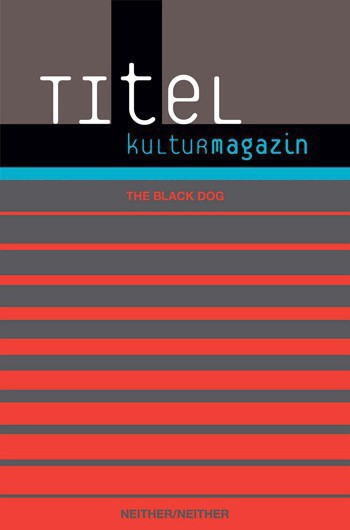Music | Bittles’ Magazine: The music column from the end of the world
Since launching in 1998 Cologne label Kompakt have proven themselves masters of melody-rich techno, dance floor bangers, and pop-tinged house. Yet, as the imprint’s revered Pop Ambient series of albums attests, they are often at their very best when they lessen the pace. By JOHN BITTLES
Lush long-players from Jens Uwe Beyer, The Orb, Vermont, Gas and Thore Pfeiffer successfully eschew the beats entirely to create sounds which excite and stimulate the senses to become so much more than mere background noise.
This July the label continue their recent run of form with the warm, evocative cascades of Whatness, Anton Kubikov’s debut solo LP. Perhaps better known as one half of the duo Scsi-9, or as joint head of the record imprint Pro-tez Records, Whatness sees the Russian-born, Prague-based artist follow successful instalments in the Pop Ambient series with a fully realised body of work. Resembling a long, lonely stroll through an empty landscape on a cool, starless night, the album’s twelve tracks are wonderfully varied, strangely poignant, and linger with the listener long after they have come to an end.
Opener Liquid Mirror sets the scene perfectly, its subtle wash of drones creating a heady sense of otherworldly tension which works as a somewhat unsettling introduction to Anton Kubikov’s aural world. Next up, Mintnight conjures the sense of calm before the night truly kicks in; the lights are coming on, there is still hustle and bustle from the streets mixed with laughter and even birdsong. You could rest here a while, content to simply gaze up at the stars. Further in, Other The Sea recalls a fully focused The Orb, Oktober and Pia are stirring piano pieces which tug gently on the soul, Kurt’s Forest is beautifully pastoral and calm, while North’s slowly undulating bass is a wonder to behold.
Taking a break from his busy routine, Anton very kindly took the time to answer some questions about his new album Whatness, working with the nice folks at Kompakt, his band Scsi-9, the label Pro-tez, and lots more.
So, get yourself settled in your comfiest chair, play Whatness as loud as you can, and let us begin…

By way of introduction, can you tell us a bit about who you are and what you do?
I’m a DJ, composer, co-owner of the label Pro-tez, and also I oversee ours (my and my wife’s) record store Randomart.
If someone only had time to listen to one track from the LP, which should it be, and why?
Each track on this album has its own meaning and the compositions are interrelated and make up a whole as a result. You can not erase words from the song, but to formally answer your question, it’s probably Other The Sea, Pia, Entrance and Oktober.
An early highlight for me is the slow burn ambiance of Other The Sea. Can you talk us through the creative process for this song?
I would not want to reverse the entire creative process of creating this track, because the integrity of one’s perception is important. It is woven from different elements of sound modelling, which in the compartment gave the effect of penetrating into a certain ionosphere, where the voice of my poems sounds like a guide in this magical journey.
The piano pieces Oktober and Pia are gorgeously sparse, yet conjure a world of emotions. How important is emotion to the music that you make?
Any music is meant to cause the listener emotions. For me, writing music is partly therapy. Setting up an internal mood. Of course emotions play an important role in writing music. Anyway, this is a reflection on the events in my life, or from the books or films I read. Sometimes it’s just a resonance arising between me and the instrument.
Songs such as Mintnight, Kurt’s Forest, and North are wonderfully calming. What do you listen to when you want to relax?
As a person who lives in a megapolis, I am most comforted by interstitials, a little distant blurred distance, woven into a single whole, sometimes giving birth to new music in my head.
The album, like a lot of your music, has been released on Cologne label Kompakt. How did you first hook-up with the good people there?
This is a strange little story. My friend Roman Inutero, who made a design for the label Salo and for the album Scsi-9 Digital Russian, decided to build bridges and wrote a letter to Robert Henke (Monolake), who then introduced me to someone from Kompakt.
I do not remember the reason why Roman wrote to him, but Robert reasonably answered that he lives in Berlin and it would be somewhat difficult, but he is ready to write a letter to his friend who will take my hand with Kompakt when I arrive in Cologne. This friend was Thorsten Lutz owner of the label Karaokekalk.
You are, perhaps, best known as one half of Scsi-9. Are there any new releases on the horizon?
Having finished with the ambient album and other solo records, after a short pause, I realized that it was time to write a new Scsi-9 album and it was at this time that Maxim and I were working on a new story. We hope to complete it by the end of the summer.
As well as producing music you also run Pro-tez Records together with Ed Karapetyan and Maxim Milyutenko. How did the label come about, and do you think Pro-tez records has a signature Sound?
The label Pro-tez appeared in 2005 and was one of the first Russian vinyl labels to produce dance and electronic music. It’s hard for me to say if our label has any special sound. Its main purpose is to become a springboard for young Russian musicians, to be a label of debuts. On the example of the artist Mujuice, it probably happened. Although it is rather his merit as a very talented and multi-faceted artist.
Are there any upcoming releases we should be aware of?
We have greatly slowed down the schedule of our releases and the history of this label is coming to its logical end, but in terms of 10 more releases, the first we have planned is the Lithuanian musician Grad U.
When did you first get into house music? And what is it about electronic music that keeps you excited today?
The first house tracks I heard were on tapes, before I became a DJ, but I began to play music as such from the year 96 when I was carried away by Chicago house. At the moment there is a lot of new stuff that fascinates me in the house music scene. But, I still like Cabinet Records and Mountain People.
Do you have any final words for our Readers?
I want to thank everyone who was involved in the release of this album directly or indirectly.
Whatness is available now from Kompakt and all good record stores. Do yourself a favour and treat yourself to a copy today.










